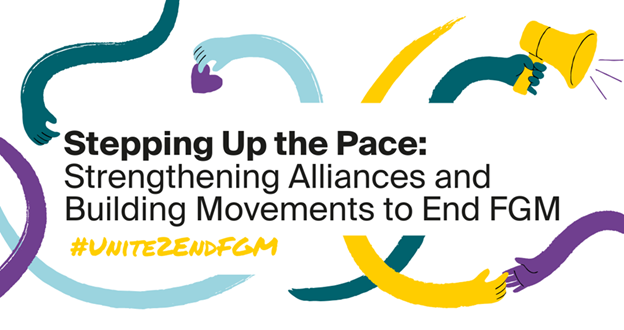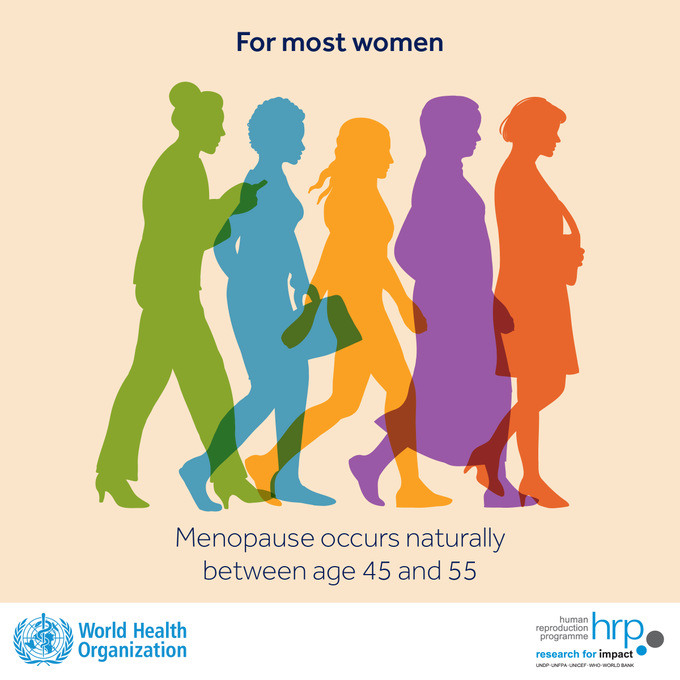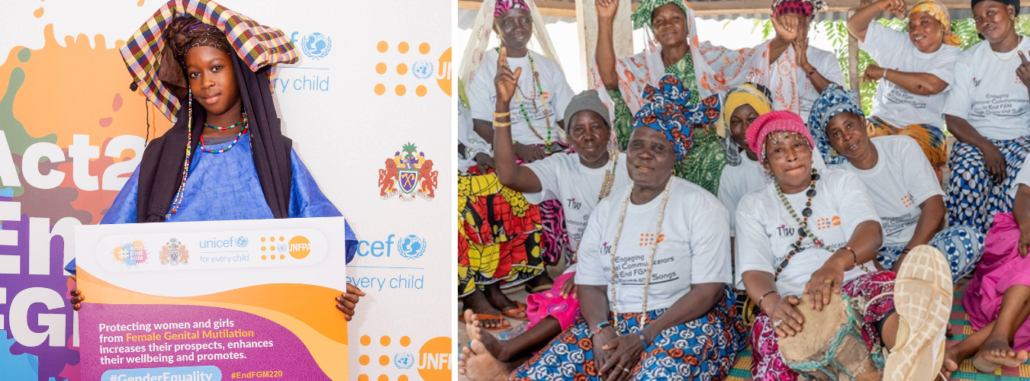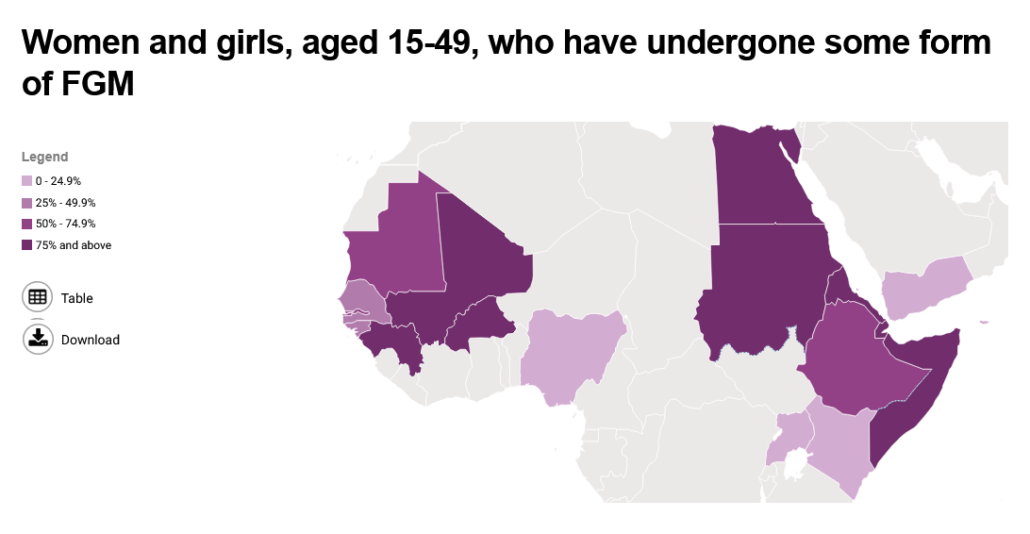International Day of Zero Tolerance for Female Genital Mutilation is 6 February. 230 million girls and women may experience long-term complications from FGM. #Unite2EndFGM
2025 Theme
What is the 2025 theme for International Day of Zero Tolerance for Female Genital Mutilation?
In International Day of Zero Tolerance for Female Genital Mutilation, 6 February: 2025 Theme: Step Up the Pace the United Nations (UN) elaborate on:
Female Genital Mutilation
What is Female Genital Mutilation (FGM)?
In International Day of Zero Tolerance for Female Genital Mutilation, 6 February: Ending Female Genital Mutilation By 2030 the UN’s definition is:
In Female Genital Mutilation (FGM): Overview the (United Kingdom) NHS (National Health Service) explain:
230 Million Girls and Women
How common is FGM?
In Female Genital Mutilation (FGM) Frequently Asked Questions resource date March 2024, the United Nations Population Fund note:
Long Term Complications
What can long-term complications of FGM include?
In Female Genital Mutilation: No Health Benefits, Only Harm, dated 31 January 2025, the WHO elaborate on:
- Urinary problems (painful urination, urinary tract infections);
- Vaginal problems (discharge, itching, bacterial vaginosis and other infections);
- Menstrual problems (painful menstruations, difficulty in passing menstrual blood, etc.);
- Scar tissue and keloid;
- Sexual problems (pain during intercourse, decreased satisfaction, etc.);
- Increased risk of childbirth complications (difficult delivery, excessive bleeding, caesarean section, need to resuscitate the baby, etc.) and newborn deaths;
- Need for later surgeries: women with Type 3 might require deinfibulation (opening the infibulated scar to allow for sexual intercourse and childbirth;
- Psychological problems (depression, anxiety, post-traumatic stress disorder, low self-esteem, etc.)”.
Health Care Provider
What if I am worried about something down there?
If you are worried about something – anything – down there, it may be in your best interest to choose to talk to your health care provider about this.
In Vulval Irritation: Odour the (Australian) Jean Hailes for Women’s Health explain:
Health Topics A-Z
Where may I find Health Topics A-Z related to International Day of Zero Tolerance for Female Genital Mutilation?
In Health Topics A-Z you may find:
Links
Where may I find Links related to International Day of Zero Tolerance for Female Genital Mutilation?
Your Country may have Links similar to:
Links
This Links List to third party websites is neither comprehensive nor exhaustive. Inclusion on this Links List does not imply endorsement or recommendation. Non-inclusion on this Links List does not imply non-endorsement or non-recommendation. Third party websites are not under the control of Meno Martha International Menopause Directory. Third party websites may contain explicit medical images and/or sexual references. Please read Meno Martha International Menopause Directory’s Links Policy before proceeding to a Link. Please contact Webmaster if you experience a problem with a Link.New or Updated
- Female Genital Mutilation [31 January 2025]
- International Day of Zero Tolerance for Female Genital Mutilation

- International Day of Zero Tolerance for Female Genital Mutilation 2025
- International Day of Zero Tolerance for Female Genital Mutilation, 6 February: 2025 Theme: Step Up the Pace

- Putting Survivors At the Forefront of the Global Movement To End Female Genital Mutilation [06 February 2025]
- Stepping Up the Pace: Strengthening Alliances and Building Movements to End FGM [06 February 2025]
- American College of Obstetricians and Gynecologists: Resources for You
- Australian and New Zealand Vulvovaginal Society: Patient Information
- Dr. Stephanie Faubion – Genitourinary Syndrome of Menopause
- End FGM European Network
- FAQs on Female Genital Mutilation : Causes, Impact and How To End It
- Female Genital Mutilation

- Female Genital Mutilation
- Female Genital Mutilation
 Female Genital Mutilation
Female Genital Mutilation- Female Genital Mutilation (FGM)
- Female Genital Mutilation (FGM) Frequently Asked Questions
- Female Genital Mutilation (FGM): National FGM Support Clinics [United Kingdom]
- Female Genital Mutilation (FGM): Overview [+ Videos]
- Find A Menopause Practitioner [United States and Other]
- Find An AMS Member [Australasian Menopause Society i.e. Australia and New Zealand]
- Find Your Nearest BMS Menopause Specialist [British Menopause Society]
- Forward [Foundation for Women’s Health Research and Development, United Kingdom]

- Frequently Asked Questions: Female Genital Mutilation
- Genitourinary Syndrome of Menopause
- Genitourinary Syndrome of Menopause [Video]
- How To Talk To Your Doctor About Bladder Leakage
- How To Talk To Your Doctor About Painful Sex
- International Day of Zero Tolerance for Female Genital Mutilation

- International Day of Zero Tolerance for Female Genital Mutilation 2025
- International Day of Zero Tolerance for Female Genital Mutilation, 6 February
- International Day of Zero Tolerance for Female Genital Mutilation, 6 February: 2025 Theme: Step Up the Pace

- International Society for the Study of Women’s Sexual Health: Find A Provider
- Later Years (Around 50 Years and Over): Menopause and Post Menopause Health – Sexual Wellbeing and Intimacy During and After Menopause [+ Video: Menopause Is the End of Your Sex Life]
- Menopause

- Menopause and Human Rights – Frequently Asked Questions
- Putting Survivors At the Forefront of the Global Movement To End Female Genital Mutilation
- Stepping Up the Pace: Strengthening Alliances and Building Movements to End FGM
- UNFPA-UNICEF Joint Programme on the Elimination of Female Genital Mutilation
- Videos & Podcasts: Videos – Menopause and Hormone Therapy: Current Perspectives and Controversies
- Vulva and Vagina
- Vulva and Vaginal Conditions
- Vulval Irritation
- What Is Female Genital Mutilation? Everything You Need To Know About FGM and What UNICEF Is Doing To Stop It
- What Types of Vaginal Oestrogens Are There?
- When Does Perimenopause Start and How Do You Define the Beginning
- Which Vaginal Moisturiser Should You Use?








